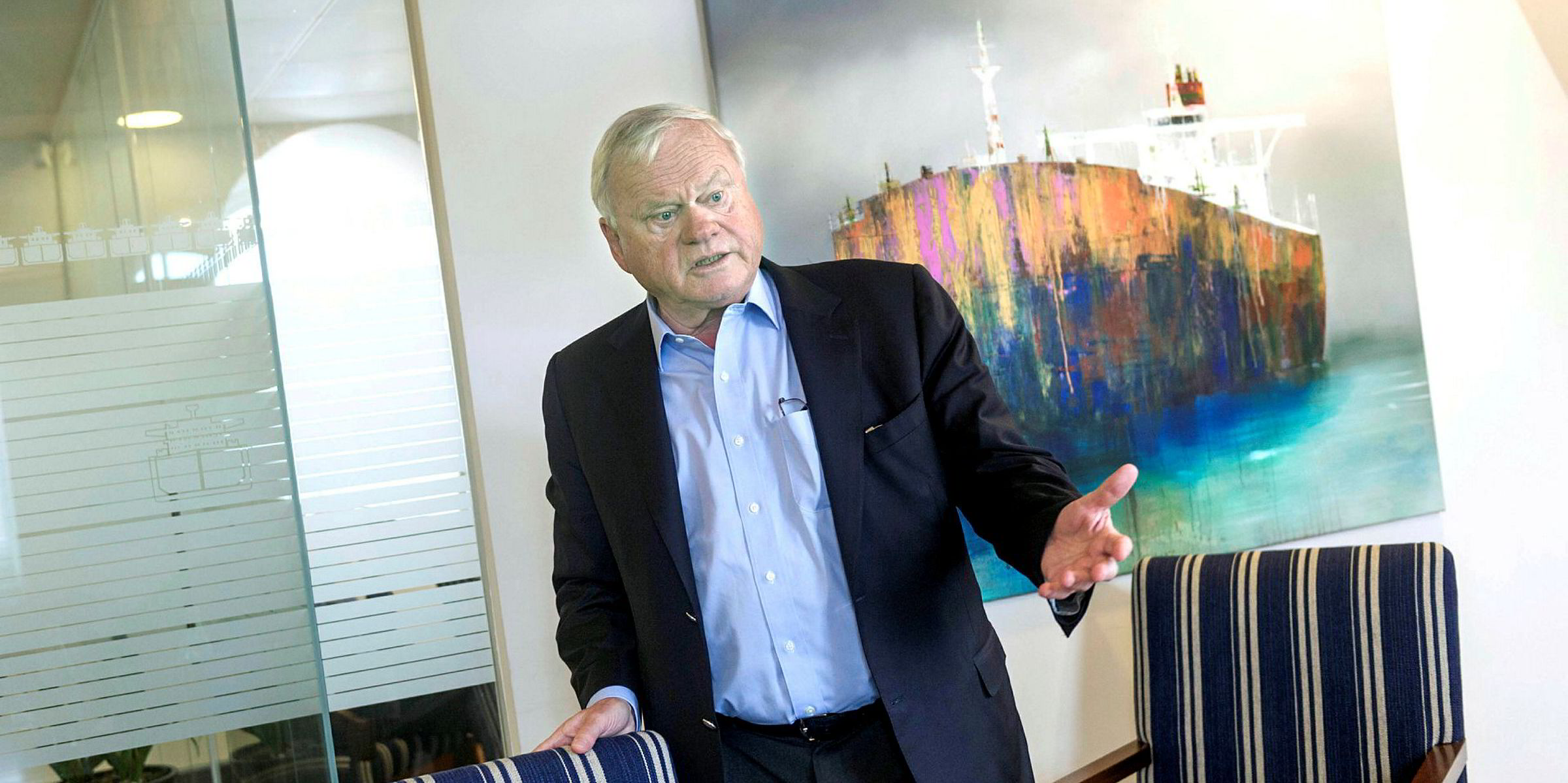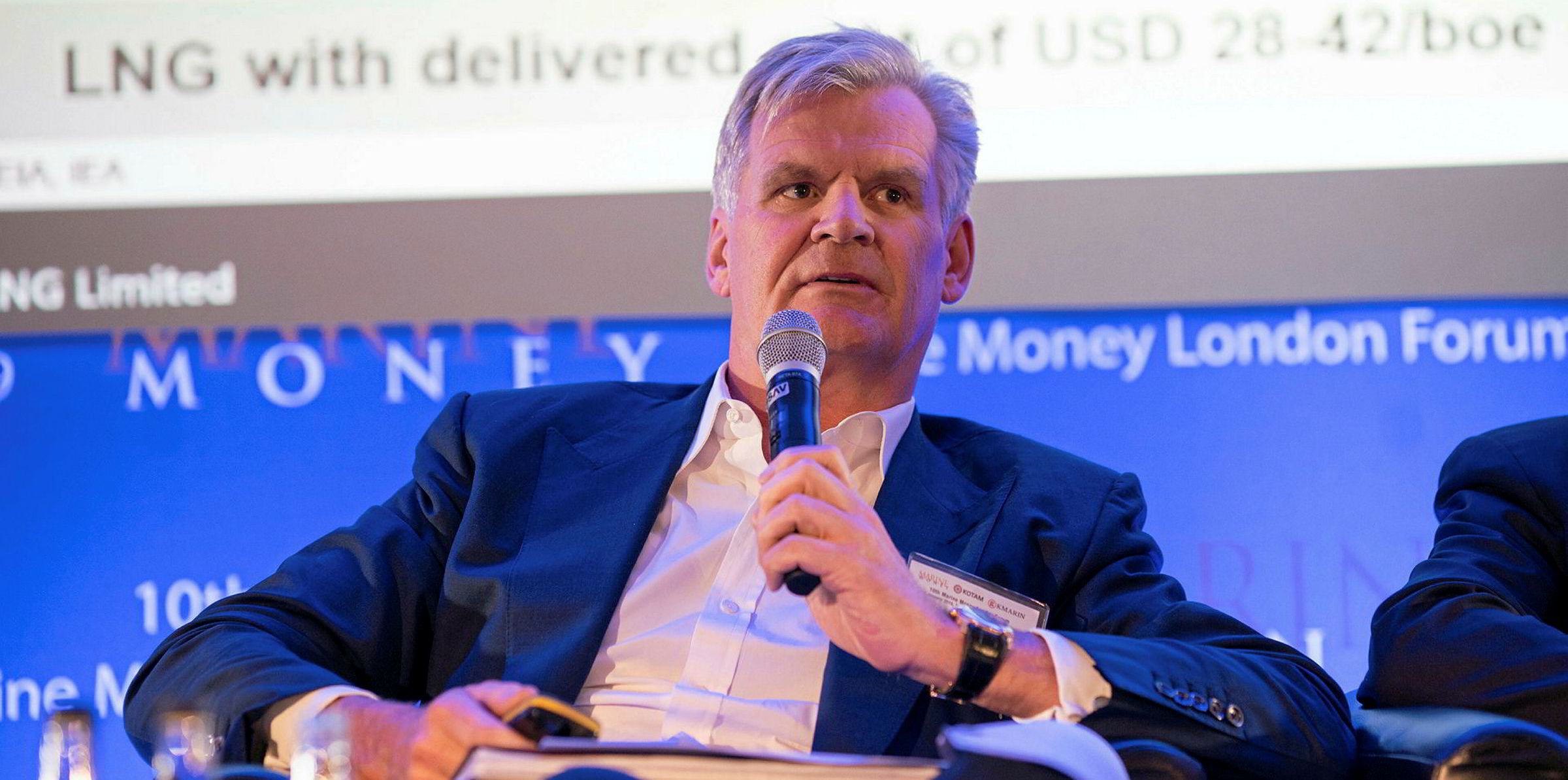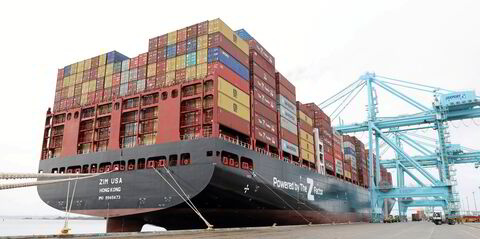The English High Court has given John Fredriksen the go-ahead to pursue a huge fraud claim against two former executives.
Private trading company Arcadia Energy, a major charterer and affiliate of the Norwegian tanker tycoon's private Seatankers, and Fredriksen-controlled Farahead Holdings Ltd, are now clear to resume their stalled efforts to recover more than $340m from Peter Bosworth and Colin Hurley.
English High Court Justice Michael Burton has found, not for the first time, that the traders are subject to his court's jurisdiction.
"The High Court has given permission to appeal, and Bosworth and Hurley will appeal," London lawyer Ted Greeno told TradeWinds. The partner at law firm Quinn Emanuel Urquhart & Sullivan represents Bosworth and Hurley.
The two veteran traders were respectively chief executive officer and chief financial officer of his Arcadia Energy until 2013. A Norwegian-born Cypriot citizen, Fredriksen contends they siphoned off nearly $287m before quitting in 2013 when their activities came under scrutiny. The total damage claim had risen to $340m by 2016.
The oil-trading company now called Arcadia Energy (Suisse) SA, is informally referred to as the Arcadia Group, together with a constellation of variously domiciled affiliates. It was owned by Japan's Mitsui & Co until Fredriksen bought it in 2005 through Farahead, a company in his private sphere.
Fredriksen took on Bosworth and Hurley, veterans under the Mitsui regime, to continue running the trading company. Bosworth was to receive $48m compensation over seven years plus a $20m loan, and Hurley "somewhat under half of that", according to Burton's ruling of 19 October.
Fredriksen has claimed they took more.
"The modus operandi of the alleged fraud was the insertion of corporate entities into both the purchasing and selling chains and the manipulation of those transactions so that almost all of the profits accumulated in the inserted corporate entities, rather than in the Arcadia Group," wrote Court of Appeals Justice Peter Gross in one of many cases in the history of the dispute.
On the merits of the case, Greeno said his clients deny Fredriksen's claims.
"The allegations are based on inference, and the matter has been explained," said Greeno.
The fight started in the English High Court, which issued an initial decision in early 2015, and proceeded to the Court of Appeal, then the UK Supreme Court and the European Court of Justice. After more UK Supreme Court proceedings, it returned recently to Burton, the judge who originally heard the case.
In its five years of travels, the litigation has hardly touched the merits of Fredriksen's claim.
The question over which jurisdiction applies has proved a knotty one. The defendants prefer Swiss jurisdiction, while Fredriksen's side has argued that UK courts have jurisdiction.
Jurisdictional considerations have put Fredriksen in the position of arguing that as shareholder and beneficial owner he gave his executives a free hand while they claim they were employees in the full sense of the word.
Under treaties governing jurisdiction of cases falling between European Union and European Free Trade Association (EFTA) countries, "matters relating to individual contracts of employment" are heard in courts of the employee's domicile. In this dispute, that is Switzerland.
But after many rounds of appeals, Burton's original finding that English jurisdiction applies has been confirmed.





